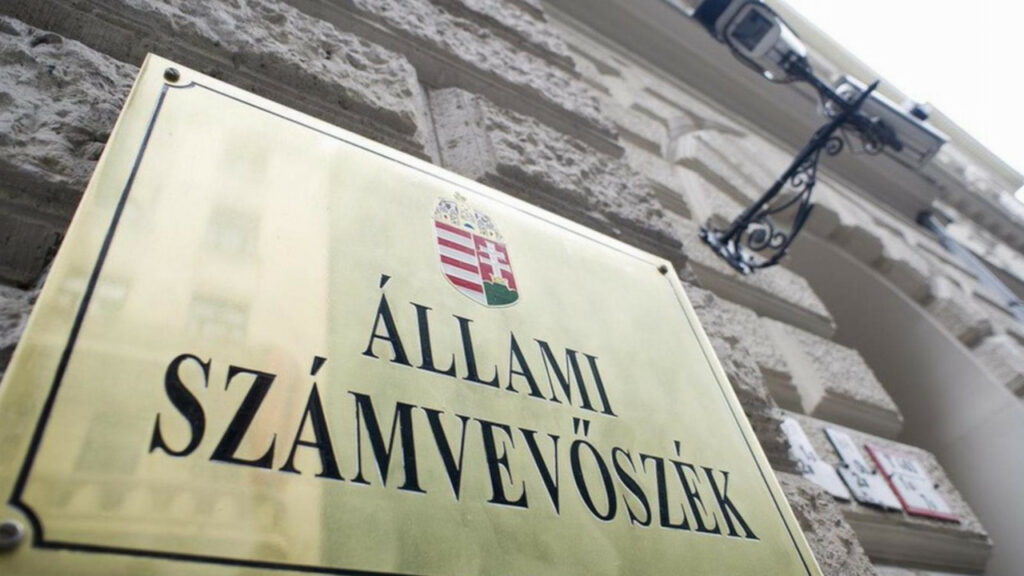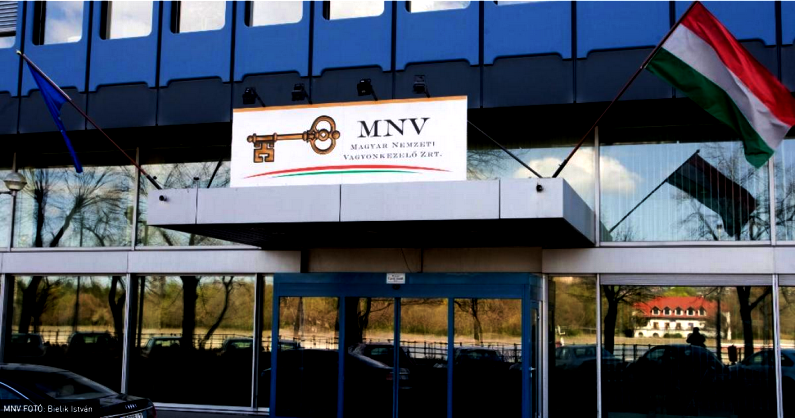The work of the Civil Justice Committee, founded by CÖF-CÖKA, basically involves the presentation of crimes committed during communism that have not yet been investigated and thus remained without consequences. Jr. Zoltán Lomnici is researching the methods and consequences of non-transparent asset management before 2010 based on the investigation of the State Audit Office.
, it can be said that, following the adoption of the 2007 Property Act, the transfer of assets between the Magyar Nemzeti Vagyonkezelő (MNV) Zrt. , created an opaque asset management situation. With this, the government at the time wanted to prevent the subsequent settlement with the Hungarian national wealth. The closing balance sheets of the institutions managing Hungary's state assets, which were terminated in 2008 - which would have served as the basis for the opening balance sheet of the newly established MNV Zrt. - were not prepared, and MNV Zrt. could be registered by the company court without an opening balance sheet. In such circumstances, it is difficult to talk about an actual handover, and the new institution was created in a non-transparent manner, with an indeterminable amount of state assets, and started operating on January 1, 2008.
At the outset, it must be stated that the purpose of the audit of the SAO was to assess whether the asset management system and the practice of the activity, designed to improve the transparent, regular, economical, efficient and effective utilization and management of state assets, met the legislative goals; whether the strategy and legal regulations defining the framework of the system were clear, unambiguous and sufficient to enforce state asset management; whether the institutional system established for the management and utilization of state assets - in the management of the assets entrusted to it - ensured the effective operation, protection of its structure, preservation and utilization of state assets over state real estate assets, land assets belonging to the National Land Fund and assets of state-owned companies operating with corporate shares , increase; whether the company's operating revenues and expenses were in accordance with the objectives defined in its business plan and the appropriations defined in the budget law; whether the aspects of regularity, expediency, frugality, economy, efficiency, and effectiveness prevailed in the management of your own assets; did the system of bookkeeping, financial, accounting, reporting and property records comply with the rules, the goals of the Property Act and the expectations of decision-makers - in the separate records of entrusted and own property; did the developed IT systems guarantee the completeness of statements and records.
The 2007 Property Act abolished the previous system consisting of three separate institutions - the Állami Privatizációs és Vagyonkezelő Zrt., the Treasury Directorate and the National Land Fund Management Organization - for institutions dealing with the management and management of assets belonging to the state. The national property owned by the three organizations was transferred to MNV Zrt. as the legal successor of the predecessor organizations in such a way that - during the implementation of these measures of the law - the fate of the national property became untraceable. This made it difficult to later establish the fact of certain economic crimes, such as embezzlement; in other words, the detection of whether the appointed managers, who were entrusted with the management of state assets at the time, could have caused a serious financial disadvantage to the Hungarian state by violating their legal and constitutional obligations.
The Audit Office stated in its report (2007): "the government did not discuss a conceptual proposal in advance, the economic effects were not quantified, and no impact study was prepared. The consequence was tasks that were not completed, or that were not completed by the legal deadline, non-compliance with the legislation, and the failure to hold them accountable."
The SAO's report also states that, despite the provisions of the law, these mandatory tasks were not carried out, the responsible managers from the predecessor companies were released without a declaration of criminal liability, without regard to the preparation of an authentic, audited and signed balance sheet, and without an inventory. As a particularly serious omission, the company court, which is also responsible for the supervision of legality (not complying with the requirements of the accounting and financial law), registered the Hungarian National Asset Management Company with a registered capital of fifty million forints, despite the fact that MNV did not have an audited initial balance sheet at the time of registration.
This confusing situation could have led, for example, to the fact that the National Audit Office's August 2009 report (on MNV Zrt.'s activities in 2008) regarding the 2008 land exchange case in Sukoro was at the mercy of the National Asset Management Council (as the executive body of MNV Zrt. established its position in the relevant period.
The decisions made by the then CEO of MNV Zrt. in his own and delegated authority were made in a non-transparent manner and with deficiencies in decision preparation - without taking internal opinions into account.
The SAO had previously recommended the elimination of these deficiencies, and asked those concerned to establish responsibility for the omissions. However, the action initiatives of the Court of Auditors were not followed by the necessary substantive responses, so the legal regulation of the transformation remained inadequate. Therefore, the SAO found the legal regulation to be incomplete or contradictory at several points, and the tasks related to the transformation were not completed at all or beyond the deadline. There was no accountability for omissions and bad decisions.
Under the leadership of the CEO, they overstepped their authority and made decisions that were largely contrary to the law, while several people, as leaders of state organizations, attempted to exchange a state-owned area in Sukoró with a businessman for a plot of much lower value. In connection with the exchange of land, the suspicion of irregularity - and, as the most serious concern, the serious value disproportion - was first confirmed by the report of the Court of Auditors and then by the official valuation of the prosecutor's office.
As for the further fate of the asset manager: in 2009, the remuneration of managers of publicly owned economic companies was limited, and the available income was - fixed at the legal level - maximized. Based on the report of the SAO , the principle of saving was not enforced at all, and the legal requirements were not observed either , two top managers and seventeen committee members could receive HUF 9.3 million more per month than the amount specified in the law. At the same time, based on the audit report, they did not perform actual, high-quality work or useful activities that would entitle them to such a consideration.

image: Origo
The ÁSZ also found that the state assets actually existing on January 1, 2008 could not be reconstructed in the first half of 2009, and the economic events could not be followed in the accounting records of MNV Zrt.
During the audit, MNV Zrt. did not provide the Audit Office with the data essential for the audit, thereby seriously complicating and interfering with the subsequent investigation - also based on the contents of the State Audit Office's report. The first official balance sheet therefore contained false data in a misleading manner, but no prosecution was held.
Due to the method of fee calculations and invoicing, the then Hungarian state (and the budget) lost significant revenues. Despite all these facts, political accountability - in connection with the irresponsible, wasteful management of the national wealth before 2010 - has been lacking.
Summa summarum: before 2010, the ruling left sold the state ownership of 190 companies during two terms, but a significant part of the HUF 750 billion flowing into the budget seemed to have disappeared from there. For this reason, during the economic crisis, there were no funds available for the targeted support of various social groups, as is the case today, for example, with the most vulnerable pensioners or young people under 25 who take up work.
Nowadays, the Hungarian government protects the nation's wealth, and it enjoys strengthened constitutional protection. Article 38 (1) of the Basic Law also states that the property of the state and local governments is national property, and that the purpose of managing and protecting "national property" is to serve the public interest, meet common needs and protect natural resources, as well as taking into account the needs of future generations".
(to be continued)
Author: Jr. Zoltán Lomnici is a constitutional lawyer
(Cover photo: MNV/István Bielik)













